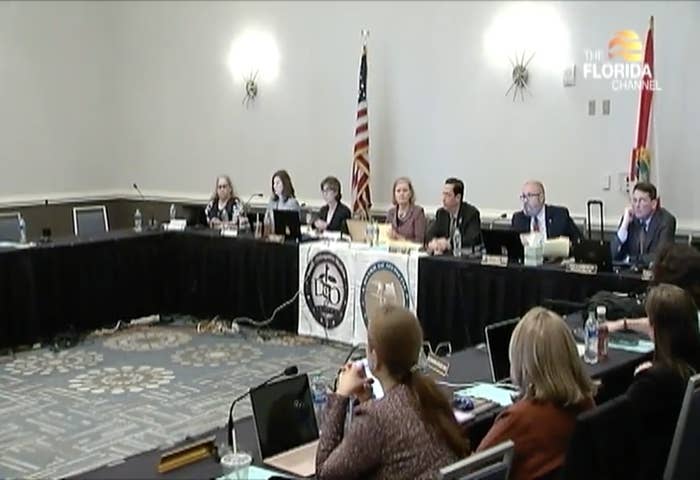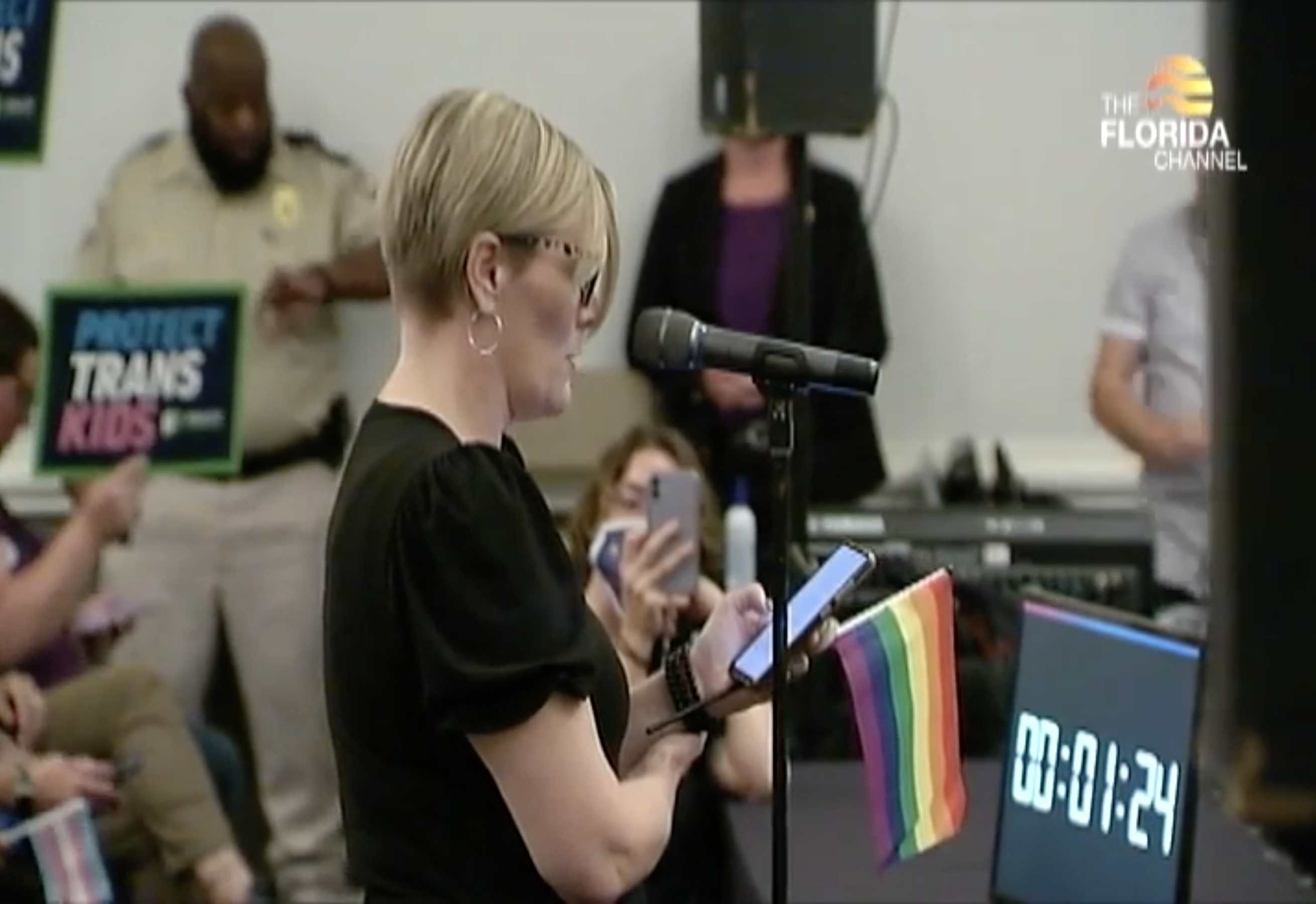Florida’s state medical board has heavily restricted access to gender-affirming surgery and care for any minors seeking to transition, in a vote finalized on Friday.
At the Holiday Inn at Disney Springs, heated debate ensued as the state medical board and the Florida Board of Osteopathic Medicine voted to effectively ban major forms of transgender therapies and surgeries. The new standard of care prevents doctors from prescribing hormones and puberty blockers, as well as performing gender affirmation surgeries, to any patient under 18 years old. Any doctor who violates the standard could risk losing their license. The only exceptions are for patients who are already going through the process and for children enrolled in clinical studies.
“Let us be the light to the world to determine what is the best care for these folks,” chairperson Dr. David Diamond said during the vote on Friday.

Gender care has been a key part of building political debate as Gov. Ron DeSantis angles for reelection in Florida. He’s made it part of his hard-line conservative agenda, passing several anti-LGBTQ+ laws during his tenure and openly announcing his desire to ban all transition-related treatments in Florida during a debate in October. However, this restriction is the first of its kind to circumvent the state House, where the ban was denied twice. All 14 members of the state medical board were appointed by DeSantis.
“It’s very disheartening,” pediatric endocrinologist Dr. Brittany Bruggeman told BuzzFeed News. “They’re going against medical guidelines, and interpreting evidence differently than any other major medical association.”

Bruggeman treats transgender patients at the University of Florida’s youth gender program, where she said the average age of patients is around 17 years old. She prescribes hormone blockers to her patients, who have already undergone mental health assessments before she meets them. She said she was frustrated by the board’s decision and has received several calls from anxious parents about their children’s healthcare.
National medical organizations like the American Medical Association and American Academy of Pediatrics have spoken out against bans on gender affirmation care in the past.
“Transgender children, like all children, have the best chance to thrive when they are supported and can obtain the health care they need,” the American Medical Association wrote in a statement after Arkansas instituted a state ban on gender affirmation care in 2021.
Many have expressed their dissent. Videos from inside the voting room show protestors holding up signs as they chant, “We will not be silenced, Stonewall was a riot.” Others have taken to social media to criticize the restrictions.
It's incredibly depressing to see the lack of caring for what's happening in Florida. Trans people are losing access to gender affirming care and it's like hardly anyone actually cares
florida board of medicine just voted to ban all gender affirming care for trans youth. im so fucking tired of this shit man. what a shithole of a state. i cant even imagine how every trans teenager must be feeling right now
There’s also concern over what will happen to the clinics who work with transgender teens. Bruggeman said she sees patients who are in their 20s as well, but she is expecting some transitional period as the clinic figures out how to move forward. Her top concern at the moment is the patients’ mental health, fearing worsening depression and anxiety. Several have already told her that they are planning on moving out of state to a place without restrictions on care.
“Any time politics interferes with the patient–doctor relationship, it really does affect physicians’ mental and emotional health as well,” she said. “We talk about moral injury in medicine. It’s something we face when we aren’t able to provide the care that we believe would be in the best interest of our patients. It’s something we’re facing with our patients.”
